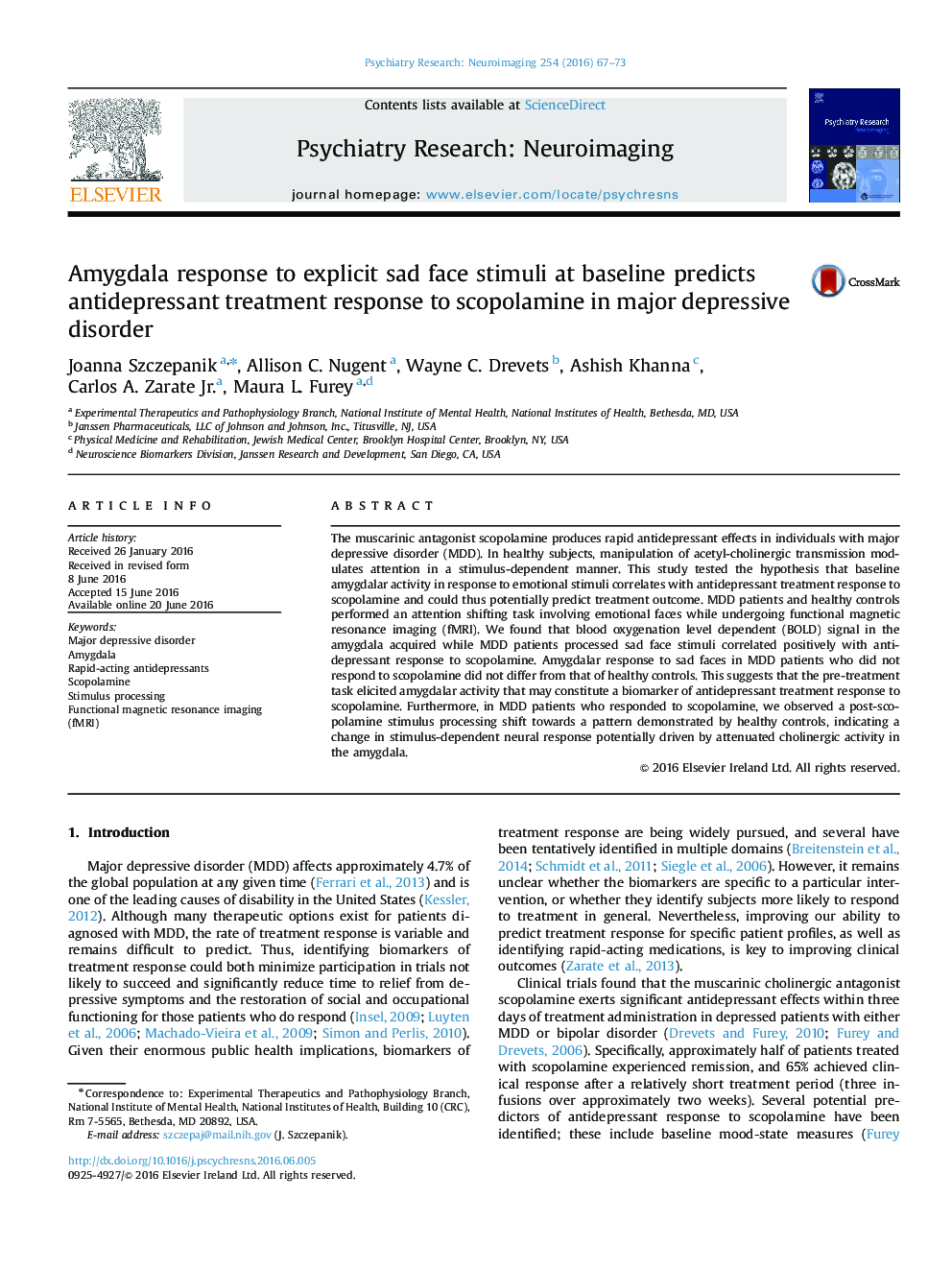| کد مقاله | کد نشریه | سال انتشار | مقاله انگلیسی | نسخه تمام متن |
|---|---|---|---|---|
| 335237 | 546897 | 2016 | 7 صفحه PDF | دانلود رایگان |
• Identifying biomarkers of antidepressant response may improve patient outcomes.
• Rapid-acting scopolamine may work by attenuating an overactive cholinergic system.
• Amygdalar activity correlates with post-scopolamine antidepressant response.
The muscarinic antagonist scopolamine produces rapid antidepressant effects in individuals with major depressive disorder (MDD). In healthy subjects, manipulation of acetyl-cholinergic transmission modulates attention in a stimulus-dependent manner. This study tested the hypothesis that baseline amygdalar activity in response to emotional stimuli correlates with antidepressant treatment response to scopolamine and could thus potentially predict treatment outcome. MDD patients and healthy controls performed an attention shifting task involving emotional faces while undergoing functional magnetic resonance imaging (fMRI). We found that blood oxygenation level dependent (BOLD) signal in the amygdala acquired while MDD patients processed sad face stimuli correlated positively with antidepressant response to scopolamine. Amygdalar response to sad faces in MDD patients who did not respond to scopolamine did not differ from that of healthy controls. This suggests that the pre-treatment task elicited amygdalar activity that may constitute a biomarker of antidepressant treatment response to scopolamine. Furthermore, in MDD patients who responded to scopolamine, we observed a post-scopolamine stimulus processing shift towards a pattern demonstrated by healthy controls, indicating a change in stimulus-dependent neural response potentially driven by attenuated cholinergic activity in the amygdala.
Journal: Psychiatry Research: Neuroimaging - Volume 254, 30 August 2016, Pages 67–73
